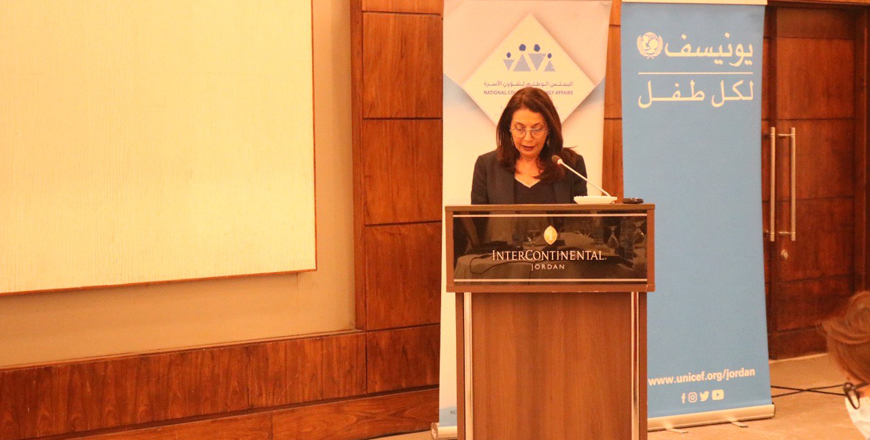AMMAN — Jordan has joined the Global Partnership to End Violence Against Children, becoming the 34th country to join the initiative in support of national efforts to End Violence Against Children (EVAC), according to UNICEF.
The Global Partnership to End Violence Against Children promotes the concept of pathfinding, which aims to raise awareness, stimulate leadership commitment, galvanise action and establish a standard of national violence prevention throughout the world, according to a statement from UNICEF and the National Council for Family Affairs (NFCA).
The announcement was made during an event held by the NFCA and UNICEF Jordan on Wednesday in Amman, which was attended by UN Special Representative to the Secretary General on Violence Against Children (SRSG-VAC) Najat Maalla, Executive Director of the Global Initiative to End all Forms of Violence [attending virtually] Howard Taylor, representatives of national child rights organisations, international organisations and the media.
During the event, the National Study on Violence Against Children in Jordan was launched to highlight community practices and attitudes on violence against children, including the most recent data on the prevalence of violence in the country.
In his opening remarks, Mohammad Meqdadi, NCFA General Secretary, expressed his pride in the NCFA being nominated by the government to represent Jordan in the EVAC global partnership.
He noted that the council’s accession to this initiative came as a “translation of the Jordanian government’s confidence in the role played by the NCFA in the field of family and child protection at the national level”.
“Jordan has adopted a participatory approach to child protection, and this has been accompanied by the establishment of integrated services, legislation and several institutional reforms in order to improve the protective environment for children in Jordan, based on the principle of multiple underlying causes of violence, so the response must be integrated,” Meqdadi added.
In her address, Maalla emphasised that ensuring the protection of children from abuse, harm and violence, and safeguarding their rights are needed more than ever.
“Ending violence against children cannot wait, because they are the hope of the future. Especially during the crisis that the world is facing which has affected different aspects of children’s lives, specifically their mental health,” she said.
Maalla encouraged considering the services provided to children and families, and spending on integrated services and multi-sectoral services, “as they provide a strong return for children, families and society as a whole”.
UNICEF Jordan Representative Tanya Chapuisat stressed that violence against children is never acceptable.
“Ending violence against children is everyone’s responsibility. UNICEF will continue to support the government of Jordan to provide children and young people with a safe, nurturing environment where they can exercise their rights, participate in society and grow up to fulfil their potential,” she said.
The National Study on Violence Against Children in Jordan is the second one after the first one done in 2007. It is a quantitative and qualitative study, which included all the governorates.
The children’s sample included 3,837 children from all schools in Jordan, the youth sample included 1,118 young Jordanians, and the caregivers sample included 1,706 participants.
The study discussed five different kinds of violence against children: Physical, psychological, sexual, cyber violence and neglect.
The study showed that 74.6 per cent of the children from the national sample suffered from physical violence, (79.2 per cent for males and 69.7 per cent for females). Seventy per cent of the children from the Syrian refugee camps sample suffered from physical violence, and 55 per cent from sample of children with disabilities.
Psychological violence was less among children than physical violence, with a rate of 58 per cent from both of the children of the national sample and the Syrian refugee camps sample, and 52 per cent for the children with disabilities sample.
The event also witnessed the launch of the Children of Jordan website, which provides a platform to view the situation of children in Jordan as part of the National Inter-Sectoral Violence Against Children Plan, which was ratified in the presence of several ministers and representatives of the Public Security Directorate.
The website covers several causes, studies and policies on children and their protection, in addition to prevention and response programmes and media campaigns aimed at preventing violence against children.
